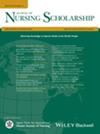What Is a Good Death in South Asia? A Systematic Review and Narrative Synthesis
Abstract
Introduction
To deliver palliative care, it is important to understand what a “good death” means to the relevant people. Such studies have mostly occurred in high-income settings that usually live by Western ideals. What matters to people is likely to vary across different regions of the world, influenced by multiple factors. Although there is a great need for palliative care in South Asia, there is a lack of comprehensive understanding of what a good death means in this setting. This study aimed to increase understanding of what is considered a good death in South Asia.
Design
Systematic review and narrative synthesis.
Method
A systematic search was conducted across eight databases, an Advanced Google search, and a bibliography search of selected articles. A data-based convergent synthesis was performed, along with quality appraisal.
Results
Twenty-five empirical studies were selected for analysis from India, Pakistan, Bangladesh, Sri Lanka, and Bhutan. Four themes emerged. Mutual care and connection support a continued sense of self: contributing to others, while receiving connection through relationships and spiritual practices, was important for patients and supported by families and healthcare workers. Freedom to choose—privilege or burden?: the choice to participate in care was necessary for some patients but a burden for others, who preferred the family to lead their care. Severe uncontrolled pain and financial distress precluded choice for some patients, who felt death was the only option. Decisions regarding artificial prolongation of life were complex for patients and healthcare workers. Opportunities in the last days: when actively dying, there was general agreement on the importance of being pain-free, feeling safe, and having family present. Home was not always the preferred place of death. For family, it was critical to perform last rites. After death matters: What happens after death—influenced by leaving a legacy and religious beliefs—affected all parties before, during, and post-death.
Conclusions
To our knowledge, this is the first review of what a good death means in South Asia. There is a dearth of research from most South Asian countries. Although the South Asian perspective has similarities with the Western perspective, we note important nuances around decision-making, prolongation of life, prognostic awareness, and wanting to end one's life, moderated by culture, religion, and poverty. We support policies that account for these variations. Ongoing work is required to provide good symptom management, thus increasing opportunities for patient participation in care. Further research is needed in areas of ethics and religion at the end of life in South Asia.





 求助内容:
求助内容: 应助结果提醒方式:
应助结果提醒方式:


